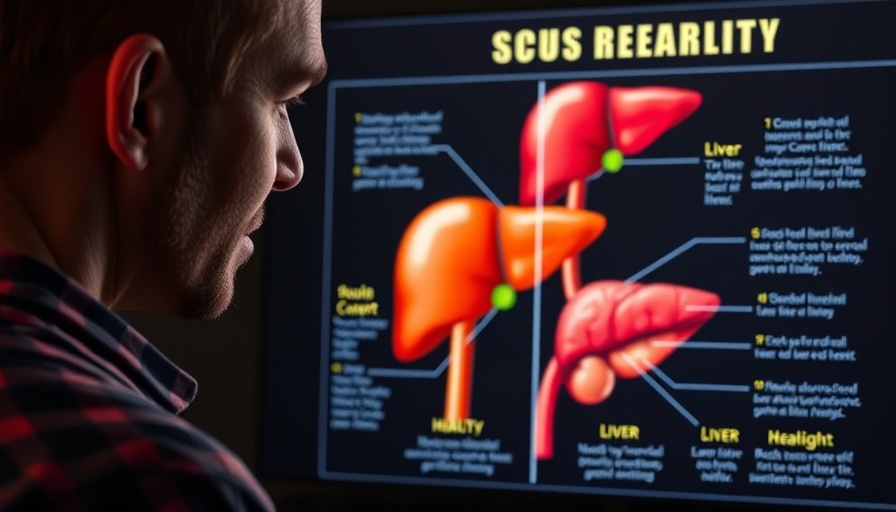
Understanding the Hidden Dangers of Everyday Toxins
When it comes to liver health, many people often associate damage with alcohol consumption or high sugar diets. However, the latest insights from health experts reveal that everyday exposures to environmental toxins, often overlooked, pose a significant risk to liver function. These toxins, including pesticides, plastics, and herbicides, mimic the hormone estrogen, leading to detrimental health effects.
In 'The #1 Best Way to CLEAN a Fatty Liver,' the discussion dives into how environmental toxins impact liver function, prompting a deeper exploration of effective detoxification strategies.
Estrogen Dominance: A Growing Concern
A key concern linked to these toxins is the phenomenon known as estrogen dominance. When these xenoestrogens infiltrate the body, they activate estrogen receptors, which can lead to a variety of health issues. For example, an excess of estrogen has been associated with liver inflammation, fatty liver disease, and even more severe conditions such as cirrhosis. Understanding the connection between these environmental toxins and the body's hormonal balance is crucial for making informed health choices.
The Connection Between Toxins and Health Risks
Research indicates that estrogen receptors are found not only in the liver but also in other critical areas of the body such as breast tissue, the uterus, and the thyroid. This widespread presence means that toxin exposure can contribute to various serious health issues, including higher breast cancer risks, infertility, and hypothyroidism. Additionally, the rise in body fat around the hips, known as estrogenic fat, further complicates health issues associated with these environmental agents.
Cruciferous Vegetables: Nature's Detoxifiers
Fortunately, there is a proactive solution to combat the effects of these harmful toxins: incorporating cruciferous vegetables into your diet. Vegetables like kale, broccoli, and cauliflower contain compounds that can help detoxify your body by transforming fat-soluble toxins into water-soluble chemicals, which are easier to eliminate. A specific nutrient known as DIM, derived from these vegetables, helps regulate excess harmful estrogens in the body.
Building a Defense Against Toxins
In addition to eating cruciferous vegetables, supplements like NAC (N-acetylcysteine) and choline can also bolster liver health by promoting the detoxification process. Together, these dietary strategies provide a multi-faceted approach to protect against the effects of environmental toxins.
Taking Action for a Healthier Future
While it may be impossible to completely eliminate exposure to xenoestrogens in our environment, understanding their danger and actively working to support liver health through diet can make a significant difference. By prioritizing the consumption of cruciferous vegetables and considering supportive supplements, individuals can play an active role in their wellness journey. Furthermore, staying informed about these issues is essential for making positive health choices.
Encouraging Healthy Choices in Our Communities
As we continue to navigate health challenges posed by environmental factors, community awareness becomes vital. Engaging in grassroots health initiatives and sharing knowledge on lifestyle changes can foster healthier communities. Whether it's advocating for sustainable practices or hosting educational seminars on detoxification, every small effort counts in building a healthier future.
Call to Action
Empower yourself by incorporating more cruciferous vegetables into your meals this week! Consider exploring different recipes or ways to enjoy these powerful foods. The journey to health starts with informed choices and vibrant community practices.
 Add Element
Add Element  Add Row
Add Row 



Write A Comment